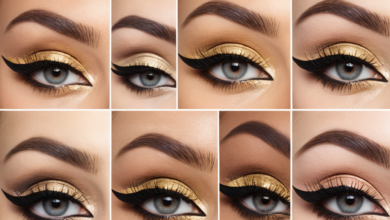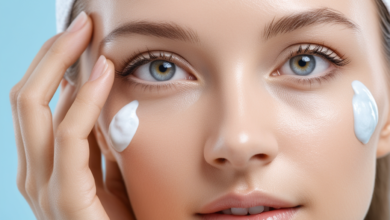How to Choose the Best Sunscreen for Your Skin: 7 Key Tips for Maximum Protection

In today’s world, protecting your skin from harmful UV rays is more important than ever. Whether you’re soaking up the sun on vacation or going about your daily routine, choosing the right sunscreen is essential to prevent skin damage, premature aging, and serious conditions like skin cancer. But with so many options available, how do you choose the best sunscreen for your skin type? In this guide, we’ll break down the key factors to help you select the perfect sunscreen for your unique skin needs, ensuring you stay safe, youthful, and radiant.
Why Sunscreen Is Essential for Everyone
Sunscreen isn’t just for those sunbathing at the beach. It’s a crucial part of everyday skin care, offering a shield against harmful ultraviolet (UV) radiation from the sun. There are two types of UV radiation that can damage your skin: UVA and UVB. UVA rays penetrate the skin deeply, leading to premature aging, while UVB rays cause surface-level damage, resulting in sunburns. Consistent exposure without proper protection can lead to long-term issues like wrinkles, hyperpigmentation, and skin cancer.
Now that we know why sunscreen is important, let’s dive into how to choose the best one for your skin.
1. Know Your Skin Type: Dry, Oily, or Sensitive?
Understanding your skin type is the first step in choosing the best sunscreen. Different skin types react differently to the ingredients in sunscreens, so it’s essential to pick a formula that works harmoniously with your skin.
- Dry Skin: Look for sunscreens with hydrating ingredients like hyaluronic acid, glycerin, or ceramides. A cream-based sunscreen will also provide extra moisture and prevent your skin from drying out.
- Oily Skin: Opt for lightweight, oil-free formulas labeled as “non-comedogenic” (meaning they won’t clog pores). Gel-based or water-based sunscreens are great for keeping that shiny, greasy feeling at bay.
- Sensitive Skin: If you have sensitive skin, mineral (or physical) sunscreens are your best option. Look for formulas containing zinc oxide or titanium dioxide, as these ingredients are less likely to irritate the skin compared to chemical sunscreens.
2. Choose the Right SPF Level for Your Lifestyle
One of the most common questions is: What SPF should I use? SPF, or Sun Protection Factor, measures how well a sunscreen protects your skin from UVB rays.
- SPF 30 is recommended for daily use and offers sufficient protection for most people.
- SPF 50+ is ideal for outdoor activities, prolonged sun exposure, or for people with fair or sensitive skin.
According to the Skin Cancer Foundation, SPF 30 blocks about 97% of UVB rays, while SPF 50 blocks 98%. There’s minimal difference in protection between SPF 30 and 50, so higher SPF levels don’t necessarily mean significantly better protection. However, for extreme conditions or long exposure, opting for SPF 50 can provide an added layer of defense.
3. Broad Spectrum Is a Must
Ensure that the sunscreen you choose is labeled as “broad spectrum.” This means it offers protection against both UVA and UVB rays. Many sunscreens only shield against UVB, which prevents sunburn but doesn’t protect against the aging effects of UVA rays. Broad-spectrum sunscreens ensure your skin is fully covered, reducing your risk of sunburn, skin damage, and skin cancer.
4. Water-Resistant Formulas for Active Lifestyles
If you swim, sweat, or spend time outdoors, consider a water-resistant sunscreen. It’s important to note that no sunscreen is truly “waterproof,” but water-resistant sunscreens provide protection while you’re swimming or sweating. These products are labeled with the duration of their water resistance, typically 40 or 80 minutes. Be sure to reapply sunscreen after swimming or toweling off to maintain adequate protection.
5. Consider the Ingredients: Mineral vs. Chemical Sunscreen
Sunscreens can be broadly categorized into two types: mineral (physical) and chemical. Understanding the difference can help you choose the best option for your skin.
- Mineral Sunscreens: These sunscreens sit on top of the skin and reflect UV rays. They contain zinc oxide and titanium dioxide and are great for people with sensitive skin because they cause less irritation. They start working immediately upon application.
- Chemical Sunscreens: These absorb UV rays and convert them into heat, which is then released from the skin. They tend to be more lightweight and less visible on the skin but may cause irritation for some people, especially those with sensitive skin.
If you have sensitive skin or prefer natural products, mineral sunscreens are a safer bet. However, if you want a lightweight, non-greasy formula that blends easily into the skin, chemical sunscreens might be more convenient.
6. Look for Antioxidant-Enriched Formulas for Extra Protection
Some sunscreens contain antioxidants like vitamin C, vitamin E, or green tea extract. These antioxidants neutralize free radicals produced by UV rays, which can damage your skin even when you’re wearing sunscreen. Sunscreens with antioxidants provide added anti-aging benefits, making them an excellent choice for those looking to maintain youthful, healthy skin while also staying protected from the sun.
7. How and When to Apply Sunscreen
It’s not just about choosing the right sunscreen — it’s also about how you use it. Proper application can make all the difference in your skin’s protection.
- Apply Generously: The American Academy of Dermatology recommends using about one ounce (a shot glass full) to cover your entire body.
- Reapply Often: Sunscreen should be reapplied every two hours, or more frequently if you’re swimming or sweating. Many people forget this step, but it’s crucial to maintaining protection throughout the day.
- Don’t Forget Easy-to-Miss Spots: Areas like the ears, back of the neck, scalp (for those with thinning hair), and the tops of your feet are often forgotten but just as vulnerable to sun damage.
Conclusion
Choosing the best sunscreen for your skin type and lifestyle is essential for staying protected and maintaining healthy, youthful skin. By understanding your skin type, selecting the right SPF, ensuring broad-spectrum protection, and knowing the difference between mineral and chemical sunscreens, you can confidently navigate the sunscreen aisle and pick the one that’s best for you. Remember to apply it properly, reapply often, and take sun safety seriously — your skin will thank you for it.





